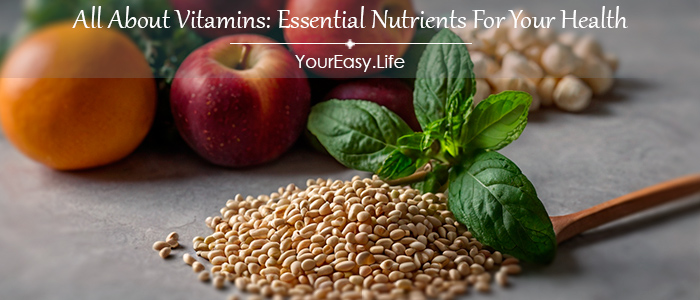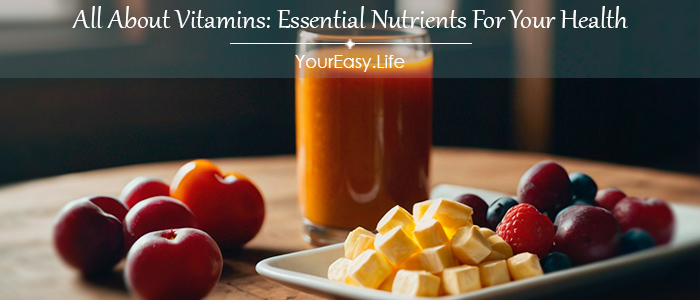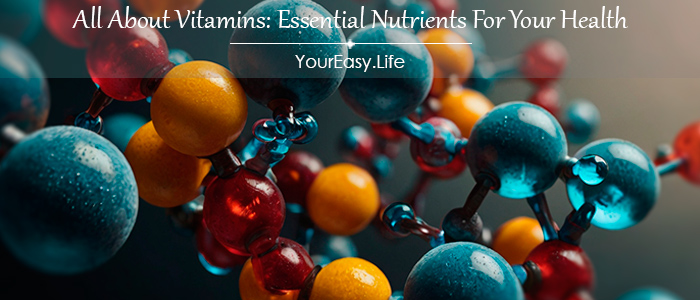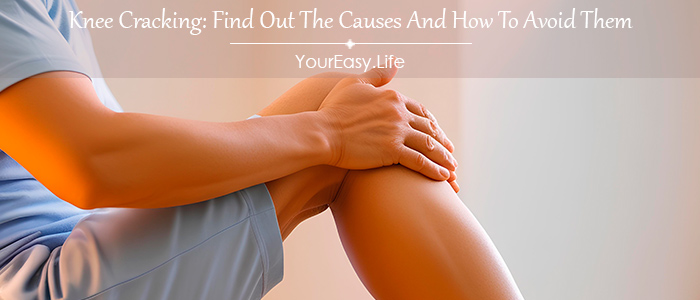Vitamins — what are they and why do we need them? Perhaps you’ve heard about them and know they’re beneficial, but you might not know why exactly. Imagine your body as a complex machine that requires specific elements to function correctly. Vitamins are those small yet incredibly important parts without which our body starts to malfunction. Do you want to learn how to support your health, improve your well-being, and prevent illnesses? Let’s figure it out together.
Table Of Contents
What Are Vitamins?
Vitamins are organic compounds essential for our body’s normal functioning. They participate in numerous processes, from maintaining immune health to supporting healthy skin and bones. Think of vitamins as little helpers that enable our body to perform at its best. Without them, its complex mechanism starts to break down, potentially leading to various diseases.
Why Are Vitamins Important?
Since they play a crucial role in maintaining our health, they consequently affect our overall well-being. They support the immune system, help combat stress and fatigue, improve skin and hair conditions, and are essential for normal growth and development as well as for preventing chronic diseases. For instance, vitamin C is vital for the immune system and protection against infections, while vitamin D aids in calcium absorption, strengthening bones and teeth. Have you ever felt tired and worn out without a clear reason? It might be that your body is not getting the necessary vitamins.
Types And Sources of Vitamins
What types of vitamins are there, and where do they come from? Vitamins can be water-soluble or fat-soluble, and each type plays a unique role in our body. Which foods are rich in specific ones, and how can a balanced diet become the key to your health? Want to learn how to diversify your diet and make it as beneficial as possible? Let’s explore this together.
What Are The Different Types Of Vitamins?
Vitamins are divided into two main groups: water-soluble and fat-soluble.
Water-Soluble:
- Vitamin C is crucial for the immune system and collagen synthesis.
-
B Vitamins:
- B1 (Thiamine) is necessary for carbohydrate metabolism.
- B2 (Riboflavin) helps in energy production.
- B3 (Niacin) supports skin health and the nervous system.
- B5 (Pantothenic Acid) is involved in synthesizing coenzyme A.
- B6 (Pyridoxine) is vital for amino acid metabolism. More information about Vitamin B6 can be found in the article: Vitamin B6: The Essential Nutrient For Your Well-Being
- B7 (Biotin) is essential for hair and nail health.
- B9 (Folic Acid) is necessary for DNA synthesis and cell development.
- B12 (Cobalamin) is important for red blood cell formation and the nervous system.
Fat-Soluble:
- Vitamin A is necessary for vision, the immune system, and skin health.
- Vitamin D helps absorb calcium, which strengthens bones.
- Vitamin E is an antioxidant that protects cells from damage.
- Vitamin K is important for blood clotting and bone health.
Where Do Vitamins Come From?
We get they from the food we eat, as they are found in various food sources:
- Fruits and vegetables are rich in A, C, and folic acid.
- Meat, fish, and eggs contain B and D.
- Dairy products are sources of vitamins D and B12.
- Nuts and seeds are high in vitamin E.
- Whole grains contain B vitamins.

“Can I Get All The Vitamins I Need From Food?”
Yes, you can get all the necessary nutrients from food if you follow a varied and balanced diet. Here are some tips:
- Eat a variety of colorful fruits and vegetables — each color corresponds to different nutrients.
- Include whole grains in your diet, which are rich in B vitamins.
- Add nuts and seeds to your diet for a good source of vitamin E.
- Eat fish and meat, which are good sources of D and B12.
- Don’t forget dairy products — they help you get D and B12.
If you’re not sure if you can balance your diet on your own, don’t worry. Many resources and apps can help you plan meals and track vitamin intake. Also, you can always consult a dietitian who can guide you on how to better organize your diet.
Functions Of Vitamins
Why is each vitamin important for our body? Vitamins perform numerous functions: from supporting vision to strengthening the immune system and improving mood. Each vitamin is unique and necessary for various biological processes. Have you ever wondered why you sometimes feel tired or notice your skin’s condition worsening? It might be due to a lack of vitamins. Let’s find out how vitamins help you feel better and how to avoid their deficiency.
What Does Each Vitamin Do?
Vitamin A
Vitamin A is key for good vision, especially if you often work in artificial or low light, and it also supports skin and immune health. If you often feel exhausted, your body might need vitamin A. Excellent sources of this vitamin are carrots, sweet potatoes, and spinach.
Vitamin B
Have you ever felt tired and lacking energy? B vitamins might be what you need, as they play a crucial role in converting food into energy. Vitamin B12, for example, helps form red blood cells and supports the nervous system. Eggs, meat, and dairy products will help you get enough B vitamins. If you are vegetarian or vegan, you can get vitamin B12 from fortified foods such as plant milk, some cereals, and yeast. Other B vitamins can be found in legumes, nuts, seeds, and dark leafy greens.
Vitamin C
Have you ever wondered why you are advised to drink orange juice when you have a cold? Because it contains vitamin C, which strengthens the immune system and helps the body fight infections. It is also very important for skin health and wound healing. Citrus fruits, strawberries, and broccoli are excellent sources of vitamin C.
Vitamin D
If you can’t remember the last time you enjoyed the sunshine, you should consider taking extra vitamin D, known as the “sunshine vitamin” because it is produced in the skin in response to sunlight and helps absorb calcium, supporting bone health. If you rarely go out in the sun, include fatty fish, eggs, and fortified foods in your diet to avoid vitamin D deficiency. Vegetarians and vegans should add fortified products, soy milk, or mushrooms to their diet.
Vitamin E
Have you ever thought about the health of your skin and hair? Vitamin E helps — it’s a powerful antioxidant that protects cells from damage and also supports the immune system and skin health. Seeds, nuts, and vegetable oils are rich in vitamin E.
Vitamin K
Have you ever considered how important it is to have healthy bones and a functioning circulatory system? Vitamin K is responsible for this, playing a crucial role in blood clotting and maintaining bone health. If you often bruise or wounds heal slowly, your body might need vitamin K. It’s abundant in greens such as spinach and kale.
“I eat healthy food, but why do I still feel tired?”
Perhaps your body lacks B vitamins, which are responsible for converting food into energy. Try adding eggs, meat, and dairy products to your diet, as well as more legumes, nuts, seeds, and greens if you are vegetarian or vegan.
“I often get bruises, could this be related to a lack of vitamins?”
Yes, it could. For example, vitamin K plays a significant role in blood clotting. Try eating more greens to improve the situation.
“Why is my skin dry and frequently inflamed?”
The cause of dry skin and frequent inflammation could be a lack of vitamin E, which protects skin cells from damage. Seeds, nuts, and vegetable oils can help replenish its deficiency.
Deficiency And Excess
Let’s discuss what can happen if your body doesn’t get enough vitamins, as they play a crucial role in our health and well-being. Or conversely, what happens if you take too many vitamins — this is also an important issue because an excess of vitamins can be harmful.
“What Happens If I Don’t Get Enough Vitamins?”
A lack of vitamins can lead to various health issues. For example, a vitamin C deficiency can cause weakness and fatigue and lead to scurvy, a condition characterized by bleeding gums and slow wound healing.
Even with a varied diet, vitamin deficiencies can occur, especially if you have specific dietary preferences or issues with nutrient absorption. For instance, vegetarians and vegans might not get enough B12, which is primarily found in animal products, potentially leading to anemia and nervous system problems.
For example, a lack of vitamin D can weaken the immune system and increase the risk of infections. Additionally, vitamin D deficiency can cause bone weakness and even rickets in children.
Other examples of possible deficiencies:
- Vitamin A: Poor vision, especially at night, and dry skin.
- Vitamin E: Reduced immune function and skin issues.
- Vitamin K: Slow wound healing and increased bleeding tendencies.
“Can I Take Too Many Vitamins?”
While they are essential for our health, excessive intake can lead to toxicity. For example, too much vitamin A can cause headaches, nausea, and even liver damage.
“But they’re just vitamins; how can they be harmful?”
Remember that vitamins are classified into water-soluble and fat-soluble categories. Water-soluble vitamins (like B vitamins and vitamin C) are typically excreted through urine, making overdose less common. However, fat-soluble vitamins (A, D, E, K) accumulate in the body and can cause problems if taken in excess.
Examples of potential issues from vitamin excess:
- Vitamin D: Hypercalcemia (high calcium levels in the blood), leading to nausea, weakness, and kidney problems.
- Vitamin E: Increased risk of bleeding and stroke.
- Vitamin K: Excessive vitamin K can reduce the effectiveness of certain medications, such as anticoagulants.
If you take supplements, always follow your doctor’s recommendations or the instructions on the packaging. Review your diet and supplements to ensure you’re getting the right amount of vitamins — neither too much nor too little.

Supplementation And Diet
Is your diet varied enough, or are you missing out on essential vitamins? Sometimes, even a balanced diet may not be enough, and vitamin supplements can be helpful. How do you choose the right supplements without harming your health? On our website, you will find the best practices for taking vitamins, doctor’s recommendations, and tips on how to combine supplements with your diet properly. Interested in improving your health without drastic dietary changes? Let’s find out what works best for you.
“Should I Take Vitamin Supplements?”
Do you need vitamin supplements or not? This is an important question without a one-size-fits-all answer, as it depends on your individual health status and lifestyle.
Sometimes, our diet does not provide all the necessary vitamins. Perhaps you eat certain foods less or more than others, or you don’t get enough sunlight, which helps synthesize vitamin D in your skin, and its deficiency can lead to bone weakness and a weakened immune system.
Even a varied diet may not guarantee sufficient vitamin intake. For example, soils can be depleted, causing fruits and vegetables to have fewer nutrients. Moreover, age and chronic diseases can affect vitamin absorption.
When might supplements be needed?
- Pregnancy and breastfeeding: During these periods, the need for vitamins, especially folic acid and vitamin D, increases.
- Over 50 years of age: As we age, our body’s ability to absorb certain vitamins decreases.
- Dietary restrictions: If you follow a strict diet excluding certain food groups, like a vegan diet, you might lack vitamins B12 and iron.
- Chronic diseases: Conditions like celiac disease or Crohn’s disease can disrupt vitamin absorption.
“How Do I Choose The Right Vitamin Supplement?”
Choosing the right vitamin supplement can be tricky, but here are some tips to help you:
- Consult your doctor: Before starting any supplements, discuss them with your doctor. They may order tests to determine which vitamins you need.
- Pay attention to dosage: High doses of some vitamins can be harmful, such as excess vitamin A causing toxicity.
- Check the composition: Choose supplements that contain vitamins in a bioavailable form. For example, methylcobalamin is a preferred form of vitamin B12 for absorption.
- Opt for quality brands: Not all supplements are equally effective, so research reviews and choose reputable brands that undergo independent quality testing.
Vitamin deficiencies can significantly impact health, and the right supplements can substantially improve well-being. The key is to approach this thoughtfully and understand your needs.
Special Considerations
Are There Specific Vitamins Important For Certain Age Groups?
Let’s discuss which vitamins are particularly important at different stages of life, and why some of them are recommended for children while others for older adults.
When children grow, their bodies especially need vitamin D and calcium for strong bones and teeth. Deficiency of these vitamins can lead to rickets in children and osteoporosis in the future. Also, A, C, and E are crucial as they support the immune system and help fight infections.
Adults need to maintain a balance of vitamins, particularly B vitamins (B6, B12, folic acid), which are involved in metabolism and support the nervous system. Vitamin D remains important as its deficiency can lead to depression and muscle weakness.
As we age, vitamin absorption decreases, but they remain essential. For example, vitamin B12 is necessary to prevent anemia and maintain cognitive functions, while vitamin D and calcium help prevent osteoporosis.
How Do Lifestyle Factors Affect Vitamin Needs?
Our habits and living conditions significantly influence our vitamin needs. If you exercise or lead an active lifestyle, you may need more vitamins and minerals for muscle recovery and energy maintenance. C and E are especially important as they help combat oxidative stress.
For instance, for those who spend a lot of time indoors, monitoring vitamin D levels is crucial since a lack of sunlight can lead to its deficiency. Also, it’s necessary to consume enough vitamin K to support cardiovascular health.
Can Certain Medications Affect Vitamin Levels?
Yes, some medications can indeed affect the absorption and levels of vitamins in the body. If you take any medications regularly, discuss the possibility of vitamin supplements with your doctor.
What Are Common Myths About Vitamins?
Myth 1: “All vitamins are the same; you can take any supplements.”
Reality: Vitamins come in different forms, and some are better absorbed than others. For example, methylcobalamin is better absorbed than cyanocobalamin (a form of vitamin B12).
Myth 2: “The more vitamins, the better.”
Reality: Excess vitamins, especially fat-soluble ones (A, D, E, K), can be toxic. For instance, too much vitamin A can cause headaches and liver damage.
Myth 3: “Vitamins can replace food.”
Reality: No, they cannot replace a balanced diet; they only complement it. It’s best to get them from food, as it also provides other beneficial substances.
Conclusion
So, we have explored what vitamins are, their types, and why they are essential at different life stages, how our lifestyle and medications affect vitamin needs, and debunked some common myths. We hope this information helps you understand the importance of maintaining a vitamin balance to support your health and well-being.
If you have doubts about your vitamin levels, consult a doctor — simple blood tests can help identify deficiencies and adjust your diet or prescribe necessary supplements.
If you think it will be challenging to follow new recommendations, don’t worry; small steps lead to significant changes. Start small by adding one healthy product a day or replacing snacks with fruits and nuts. You will feel the difference! You’ve already taken the first step by reading this article. Keep moving forward, and you will see how small changes in diet and lifestyle lead to significant improvements in your well-being.





